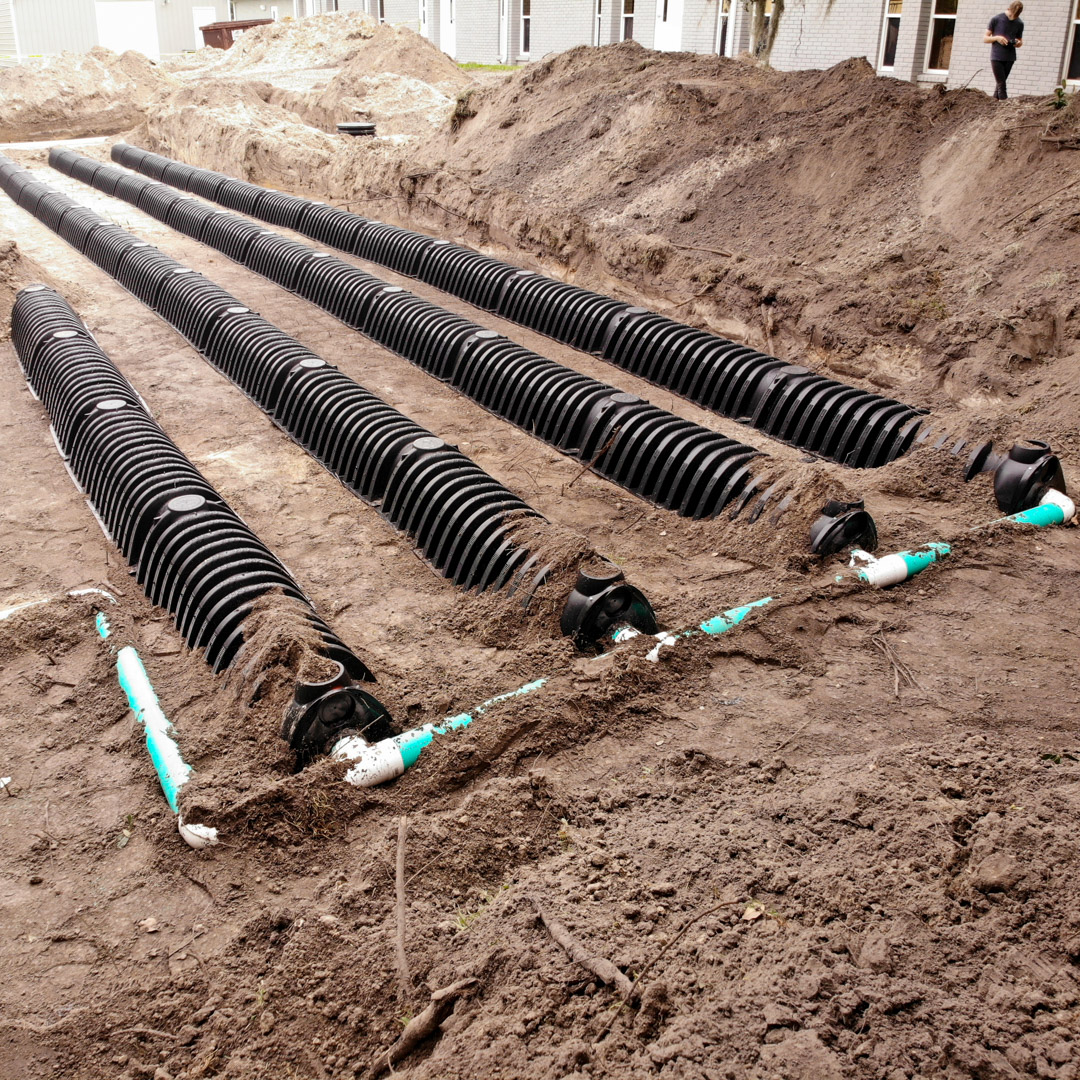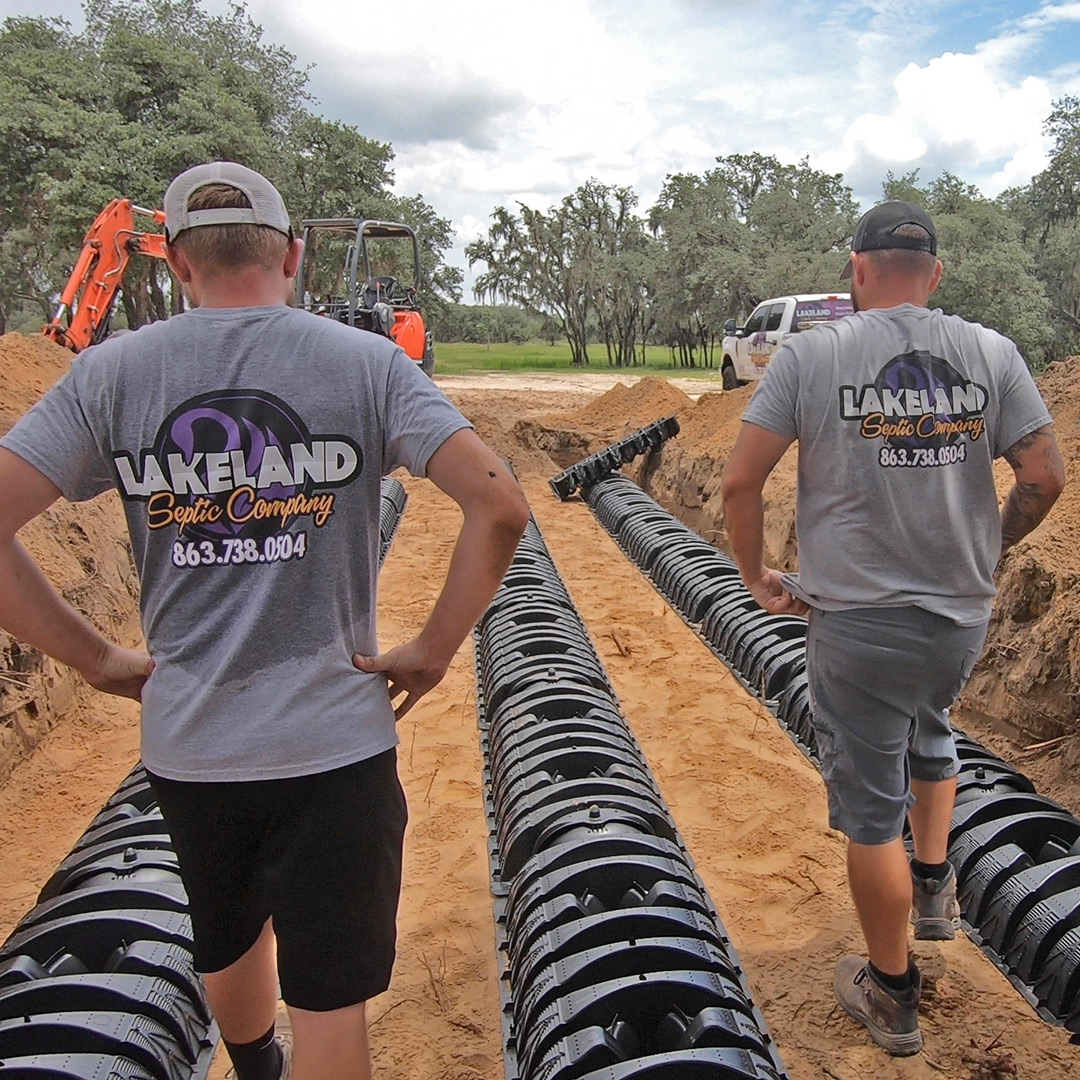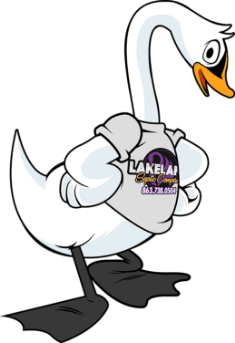Common Causes of Septic System Drain Field Damage and Malfunction
The drain field, like most other parts of a modern septic system, lies underground and therefore is rarely noticed. It does get noticed, however, if the field becomes damaged and can no longer manage the liquid waste flowing into it from the septic tank. Lakeland Septic Company serves the entire Lakeland, FL, region with drain field inspection and repair designed to keep this crucial part of your septic system running as it was designed to.
Sometimes referred to as a “leach field,” the purpose of a drain field is to treat septic liquids and distribute them into adjacent soil. If there are problems, you’ll know about them pretty quickly (see below).
 8 common causes of drain field damage
8 common causes of drain field damage
Here are eight of the most common reasons drain fields become damaged at our Florida customers’ homes:
1. Heavy vehicles
Because your drain field is set fairly shallow in the ground, heavy trucks and equipment driven or parked over it can crush parts of the field and cause backups and leaks.
2. Construction over the field
You don’t want to build stuff over the drain field. Sheds, outbuildings and room extensions, for example, can easily and quickly damage the drain field. In addition, these structures make it difficult or impossible for workers to get to the field for regular maintenance and repairs.
3. Invading roots
When a drain field is installed too close to aggressive root systems – or when plants or trees with aggressive roots are put in near the drain field – big problems might be on the way. Know the exact location of your drain field before planting near it.
4. Kitchen fats and oils
Excess cooking oils can clog the lines leading from the home to the septic tank and from the tank to the drain field. Inappropriate items such as paper towels, hair, feminine products and other “solids” will only make the problem worse.
5. Flooding the drain field
Your septic system and connected drain field was probably designed to handle a certain capacity of waste from your home, but this capacity may change over time. If you’re sending too much drainage into the system, the drain field may become saturated and not be able to process waste efficiently. Keep an eye on excess use of household water, such as from multiple laundry loads and showers, in a short period of time.
6. External flooding
Rainwater from driveways, roofs and other sources should be channeled away from the drain field to avoid oversaturation and trouble absorbing waste liquids. In Florida, we get enough rain as it is without us adding to the problem.
7. Burning above the drain field
The heat from burning leaves and trash can damage the plastic drain field pipes. So can the heat from a fire pit or bonfire.
8. Excess topsoil or compost
Limit these layers to two or three inches in thickness so you don’t add too much weight above the drain field.
 Noticing septic problems?
Noticing septic problems?
Signs of a drain field or septic tank problem include:
- Soggy ground or lush grass above the systems
- Sewage smells outside or inside the home
- Slow sink drains or drains that back up
- Toilets that flush sluggishly or overflow
- Septic system alarms going off
These signs could point to a problem that needs to be dealt with right away. Lakeland Septic is here to help with any issues you’re having with any part of your septic system. We provide emergency and routine service. Get the problem fixed fast by calling (863) 738-0504. You can also reach out with our handy contact form.


